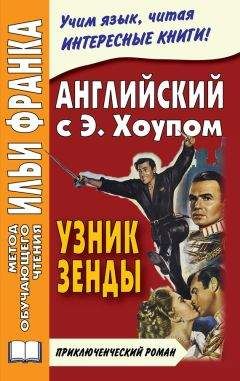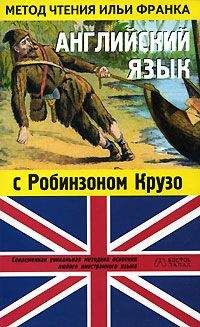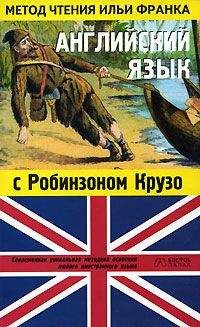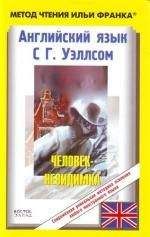Ruritania is not England, or the quarrel between Duke Michael and myself could not have gone on, with the extraordinary incidents which marked it, without more public notice being directed to it. Duels were frequent among all the upper classes, and private quarrels between great men kept the old habit of spreading to their friends and dependents. Nevertheless, after the affray which I have just related, such reports began to circulate that I felt it necessary to be on my guard. The death of the gentlemen involved could not be hidden from their relatives. I issued a stern order, declaring that duelling had attained unprecedented licence (the Chancellor drew up the document for me, and very well he did it), and forbidding it save in the gravest cases. I sent a public and stately apology to Michael, and he returned a deferential and courteous reply to me; for our one point of union was – and it underlay all our differences and induced an unwilling harmony between our actions – that we could neither of us afford to throw our cards on the table.
He, as well as I, was a ‘play-actor’ (он так же, как и я, был лицедеем), and, hating one another, we combined to dupe public opinion (и, ненавидя друг друга, мы объединились, чтобы обмануть общественное мнение). Unfortunately, however, the necessity for concealment involved the necessity of delay (однако, к сожалению, необходимость таиться влекла за собой неизбежное промедление; necessity – необходимость; неизбежность): the King might die in his prison, or even be spirited off somewhere else (король мог умереть в заточении: «в своей тюрьме», или даже /его могли/ увезти куда-то еще; to spirit off – тайно унести, похитить); it could not be helped (с этим ничего нельзя было поделать: «этого невозможно было избежать»; to help – помогать; избегать). For a little while I was compelled to observe a truce (некоторое время я был вынужден соблюдать перемирие; to observe – наблюдать, замечать; соблюдать), and my only consolation was that Flavia most warmly approved of my edict against duelling (и моим единственным утешением было то, что Флавия очень горячо одобрила мой эдикт против дуэлей; to console – утешать; most – больше всего; весьма), and, when I expressed delight at having won her favour (и, когда я выразил восторг от /того, что/ завоевал ее расположение), prayed me, if her favour were any motive to me (/она/ просила меня, если ее расположение имеет какое-то значение для меня = если я ценю ее доброе ко мне отношение), to prohibit the practice altogether (запретить дуэли совсем; practice – практика; привычка, обычай).
“Wait till we are married,” said I, smiling (подожди до нашей свадьбы: «пока мы поженимся», – сказал я, улыбаясь).
He, as well as I, was a ‘play-actor’, and, hating one another, we combined to dupe public opinion. Unfortunately, however, the necessity for concealment involved the necessity of delay: the King might die in his prison, or even be spirited off somewhere else; it could not be helped. For a little while I was compelled to observe a truce, and my only consolation was that Flavia most warmly approved of my edict against duelling, and, when I expressed delight at having won her favour, prayed me, if her favour were any motive to me, to prohibit the practice altogether.
“Wait till we are married,” said I, smiling.
Not the least peculiar result of the truce and of the secrecy which dictated it (не менее необычным результатом перемирия и секретности, которая его вызывала: «предписывала») was that the town of Zenda became in the day-time (было то, что городок Зенда стал в дневное время) – I would not have trusted far to its protection by night (я бы не слишком доверился его покровительству ночью; protection – защита, охрана; покровительство) – a sort of neutral zone, where both parties could safely go (чем-то вроде нейтральной зоны, где обе стороны могли чувствовать себя в безопасности: «могли безопасно передвигаться»; party – команда, группа, партия; /юр./ сторона); and I, riding down one day with Flavia and Sapt (и у меня, когда /мы/ проезжали /по нему/ однажды с Флавией и Сэптом), had an encounter with an acquaintance (произошла неожиданная встреча с одним знакомым; acquaintance – знакомство; знакомый), which presented a ludicrous side, but was at the same time embarrassing (которая имела смешную сторону, но, в то же время, смутила /меня/; to present – преподносить, дарить; являть, представлять /собою/). As I rode along, I met a dignified looking person (когда я проезжал вдоль /улиц/, то встретил человека благородной наружности; dignified – обладающий чувством собственного достоинства; горделивый, величественный) driving in a two-horsed carriage (едущего в коляске, запряженной двумя лошадьми). He stopped his horses, got out, and approached me, bowing low (он остановил лошадей, сошел и приблизился ко мне, низко кланяясь). I recognized the Head of the Strelsau Police (я узнал /в нем/ начальника полиции Стрелсо).
“Your Majesty’s ordinance as to duelling is receiving our best attention,” he assured me (указу вашего величества относительно дуэлей мы уделяем повышенное внимание, – заверил меня он; best – лучший; основной, главный).
If the best attention involved his presence in Zenda (если это повышенное внимание подразумевало его присутствие в Зенде; to involve – включать /в себя/; подразумевать, влечь за собой), I determined at once to dispense with it (я тут же решил обойтись без этого; to dispense – распределять, раздавать; обходиться /без чего-л./).
Not the least peculiar result of the truce and of the secrecy which dictated it was that the town of Zenda became in the day-time – I would not have trusted far to its protection by night – a sort of neutral zone, where both parties could safely go; and I, riding down one day with Flavia and Sapt, had an encounter with an acquaintance, which presented a ludicrous side, but was at the same time embarrassing. As I rode along, I met a dignified looking person driving in a two-horsed carriage. He stopped his horses, got out, and approached me, bowing low. I recognized the Head of the Strelsau Police.
“Your Majesty’s ordinance as to duelling is receiving our best attention,” he assured me.
If the best attention involved his presence in Zenda, I determined at once to dispense with it.
“Is that what brings you to Zenda, Prefect?” I asked (это то, что привело вас в Зенду, префект? – спросил я).
“Why no, sire (почему же, нет, сир); I am here because I desired to oblige the British Ambassador (я здесь, потому что хочу оказать услугу британскому послу; to oblige – обязывать, принуждать; делать одолжение, оказывать услугу).”
“What’s the British Ambassador doing dans cette galère?” said I, carelessly (что же британский посол делает в этой дыре? – небрежно спросил я; dans cette galère /фр./ – на этой галере; careless – небрежный, неосторожный; care – забота; осторожность, внимание).
“A young countryman of his, sire – a man of some position – is missing (пропал его молодой соотечественник – человек, занимающий некоторое положение). His friends have not heard from him for two months (его друзья не получают от него вестей уже два месяца; to hear from – получать известие, сообщение), and there is reason to believe that he was last seen in Zenda (и есть основание полагать, что последний раз его видели в Зенде).”
Flavia was paying little attention (Флавия почти не обращала внимания: «обращала мало внимания» /на наш разговор/; to pay – платить; оказывать, обращать). I dared not look at Sapt (я не осмеливался взглянуть на Сэпта).
“What reason (что за основание)?”
“A friend of his in Paris – a certain M. Featherly – has given us information (его друг в Париже – некий мистер Фэзерли – предоставил нам сведения) which makes it possible that he came here (из которых становится вероятным: «которые делают возможным то», что он приехал сюда; to make possible – давать возможность), and the officials of the railway recollect his name on some luggage (а служащие железной дороги припомнили его имя на багаже).”
“Is that what brings you to Zenda, Prefect?” I asked.
“Why no, sire; I am here because I desired to oblige the British Ambassador.”
“What’s the British Ambassador doing dans cette galère?” said I, carelessly.
“A young countryman of his, sire – a man of some position – is missing. His friends have not heard from him for two months, and there is reason to believe that he was last seen in Zenda.”
Flavia was paying little attention. I dared not look at Sapt.
“What reason?”
“A friend of his in Paris – a certain M. Featherly – has given us information which makes it possible that he came here, and the officials of the railway recollect his name on some luggage.”
“What was his name (как его имя)?”
“Rassendyll, sire,” he answered (Рассендил, сир, – ответил он); and I saw that the name meant nothing to him (и я понял, что это имя ничего для него не значит). But, glancing at Flavia, he lowered his voice, as he went on (но, взглянув на Флавию, он понизил голос, когда продолжал): “It is thought that he may have followed a lady here (полагают, что он мог сопровождать сюда даму; to follow – следовать за /кем-л./; сопутствовать, сопровождать). Has your Majesty heard of a certain Madame de Mauban (/приходилось/ его величеству слышать о некой госпоже де Мобан)?”
“Why, yes,” said I, my eye involuntarily travelling towards the Castle (пожалуй, да, – сказал я, невольно устремив взгляд в сторону замка).
“She arrived in Ruritania about the same time as this Rassendyll (она прибыла в Руританию примерно в то же время, когда и этот Рассендил).”
I caught the Prefect’s glance (я перехватил взгляд префекта); he was regarding me with enquiry writ large on his face (он пристально смотрел на меня, и сомнение ясно отображалось: «было крупно написано» на его лице; to regard – рассматривать, считать; внимательно смотреть, разглядывать; enquiry – вопрос, запрос; сомнение; writ – устар. форма прош. вр. от гл. to write; writ large – явный, ясно выраженный).
“Sapt,” said I, “I must speak a word to the Prefect (Сэпт, – сказал я, – я должен сказать /несколько/ слов префекту). Will you ride on a few paces with the princess (вы не проедете с принцессой немного вперед: «на несколько шагов»)?” And I added to the Prefect (и, /повернувшись/ к префекту, добавил): “Come, sir, what do you mean (итак, сэр, что вы имеете в виду)?”
He drew close to me, and I bent in the saddle (и он приблизился ко мне, а я наклонился в седле).
“What was his name?”
“Rassendyll, sire,” he answered; and I saw that the name meant nothing to him. But, glancing at Flavia, he lowered his voice, as he went on: “It is thought that he may have followed a lady here. Has your Majesty heard of a certain Madame de Mauban?”
“Why, yes,” said I, my eye involuntarily travelling towards the Castle.
“She arrived in Ruritania about the same time as this Rassendyll.”
I caught the Prefect’s glance; he was regarding me with enquiry writ large on his face.
“Sapt,” said I, “I must speak a word to the Prefect. Will you ride on a few paces with the princess?” And I added to the Prefect: “Come, sir, what do you mean?”





